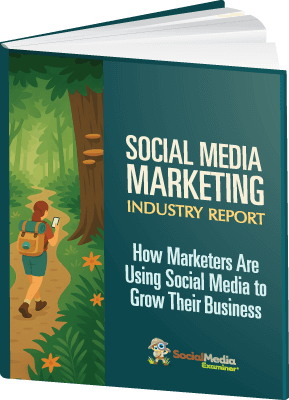Are you a niche marketer ready to open a full marketing agency? Looking for advice on hiring, service models, and client acquisition?
In this article, discover how one marketer transitioned from solopreneur to marketing agency owner.
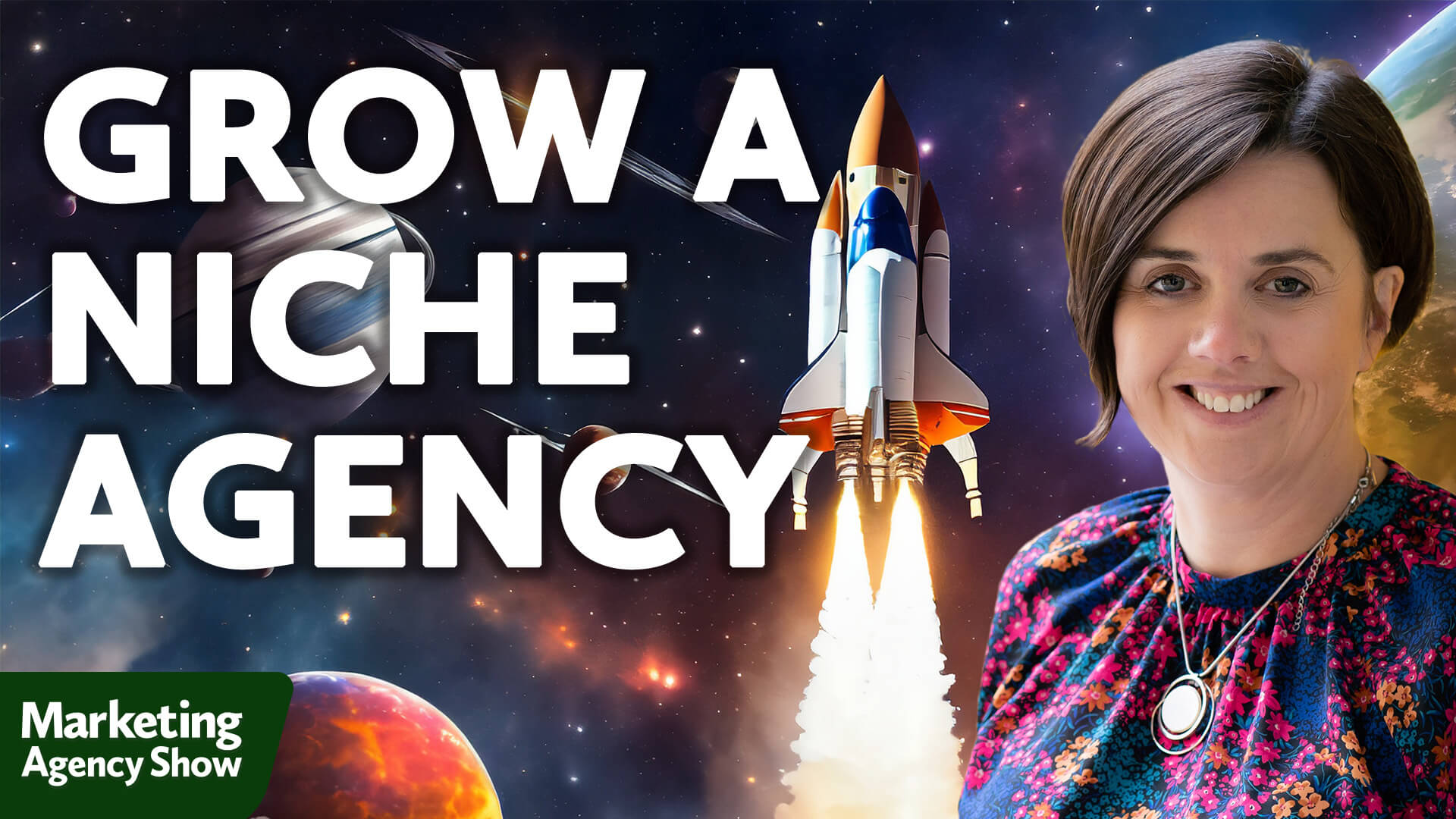
Making the Leap From Solopreneur to Marketing Agency Owner
The journey of business growth for solopreneurs typically reaches an inflection point where bringing on a team becomes necessary to continue scaling. Handling everything as a one-person operation gets extremely taxing as revenue expands. Transitioning from successful solopreneur to agency owner poses unique challenges but ushers in newfound freedom and revenue potential.
Louise Brogan is an accomplished entrepreneur who runs a boutique marketing agency focused on helping businesses and professionals optimize their LinkedIn presence. She shares valuable insights on her journey from being a solopreneur to building a successful niche marketing agency.
Louise started her own business as a solopreneur, offering small businesses one-on-one coaching and consulting social media marketing services. Her agency evolved organically after realizing she couldn’t do everything independently and needed a team to grow. She added one contract writer to help create LinkedIn content for client accounts. As demand grew from existing and new clients, Louise incrementally added services such as visual content creation and video to match her growing client needs.
Initially, though, Louise didn't consciously set out to build an agency—it just happened accidentally. Many solopreneurs can find themselves accidentally running agencies without planning for it. Louise suggests embracing the transition openly and consciously. This includes adjusting your mindset and language from “I” to “we” when referring to your business.
Louise says needing reliable revenue was a big motivator for building her team. As a solopreneur, income can fluctuate significantly. Having an agency with recurring retainer fees provides stability.
Additionally, creating services that can scale through employees and contractors allows business owners to focus less on delivery and more on areas like new business development.
How to Transition From Solopreneur to Niche Marketing Agency Owner
The journey from solopreneur to agency owner brings an exciting yet demanding new set of challenges. Louise provides firsthand experience and advice for smoothly handling key hurdles around hiring properly, letting go of control, niching down, and structuring your products and services.
#1: Let Go of Control
A significant hurdle for solopreneurs transitioning to agency owners is letting go of control. When you have done everything yourself initially, trusting others to do quality work can be challenging. Louise cites overcoming the following self-doubts as key:
- Can I let someone else handle client work up to my standards?
- If I train them on my systems, will someone try to steal my clients?
Delegating tasks and processes can be difficult for entrepreneurs—you get used to doing everything yourself and knowing exactly how it’s done. As a solopreneur, you build repeatable and scalable processes, but you don't even realize you have intellectual property. Identifying those processes and allowing others to take them over is key.
Louise formed her agency about four years ago and admits she still has one foot in the solopreneur pool. Her team creates all the client content, but she still delivers one-on-one LinkedIn training, at least for now.
When she hired her first writer, Louise immediately realized their writing was better than what she could do—Louise understood that there are professional copywriters out there she should leverage instead of trying to do it all herself without a marketing degree.
It's baby steps—once Louise saw others could deliver quality work, she freed up more time for business development by handing off tasks. Louise now has a team with writers, designers, account and operations managers, and more.
AI Is No Longer Optional for Marketers—Ready to Master It?
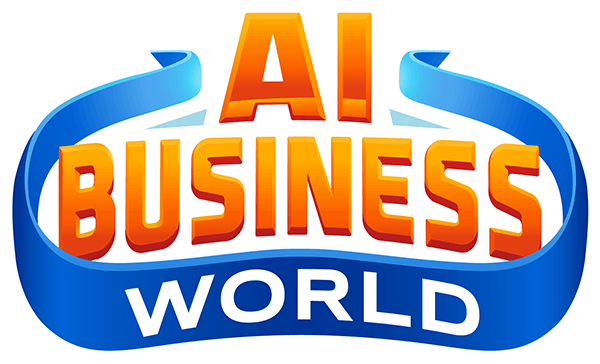
Join over a thousand forward-thinking marketers at AI Business World—a conference-in-a-conference at Social Media Marketing World.
Get two days of practical AI training where you'll discover:
✅ Systems that 3x your output—leaving time for strategy and creativity
✅ Proven strategies you can deploy right away—no guesswork, no wasted budget
Become the indispensable AI expert your company needs.
GET YOUR TICKETS—SAVE $400Surrounding yourself with talented people who complement your skills and fill critical roles you want to avoid handling yourself is valuable. For example, Louise’s operations manager has implemented many helpful systems and processes for the agency. She's organized over 100 pages of templates and workflows in Google Docs to streamline their systems.
“Why would I try and struggle and do all that myself when I can have somebody like that in my team who loves doing it as well?” Louise says. It has freed Louise up to focus on the things she’s best at.
Learning to relinquish control takes time. Starting small with contractors or having initial trial periods can help build trust incrementally.
#2: Hire the Right Team
Building a team opens up growth capacity only if you hire qualified candidates suited to critical roles. Louise warns that hiring too quickly without assessing a candidate's abilities can cause significant issues.
For example, Louise brought someone onto her team because they got along well in the interview, even though the person wasn't qualified. For 2–3 months, Louise spent so much time hand-holding and course-correcting with this person that she couldn’t focus on business development. And she saw the clients they were working on took way more hours than Louise’s other team members' clients.
Louise soon realized it wasn't working but felt emotionally attached and wanted to give them more chances since they were part of her team. People say, “Hire slow, fire fast,” and Louise said she learned that lesson the hard way. Once Louise finally let that person go, they even admitted it wasn't the right fit. When Louise made the change, she freed up time and energy and quickly brought on new clients.
Louise advises not to ignore red flags when hiring freelancers and staff because you like someone personally. Hire slowly and carefully based on qualifications. And if someone ultimately isn't working out, act quickly rather than dragging it on. Louise now properly vets potential hires and gives new hires a trial period to ensure they boost rather than slow down the business momentum.
Louise says working with a coach for five years also greatly impacted her hiring practices and business growth. Her coach, Natalie Eckdahl—host of The BizChix Podcast, was actually the one who suggested she focus specifically on LinkedIn. That was one of the first pivotal changes she guided Louise to make.
Later, when Louise was paying herself contractor rates, her coach told her that if she wanted to grow beyond solopreneurhood, she should consider building a team around her.
Her coach provided beneficial training on hiring—where to find people, what questions to ask, and how to structure a paid trial to assess fit and work quality. She pushed Louise to become an agency instead of just working alone.
Mixing Employees and Contractors
Louise admits hiring her first employee was scary after seeing her dad's business struggles with employees, including lawsuits when letting staff go. However, Louise’s coach convinced her that hiring staff rather than only contractors leads to more stability and loyalty in building a team. Employees are less likely just to quit unexpectedly.
She took the plunge a year ago, hiring one employee locally in Northern Ireland. They can now meet in person monthly, which has been an eye-opener and proven valuable coming from mostly virtual relationships. Louise has built a hybrid team with one local employee complemented by specialists in visuals, writing, and more on a contract basis.
Although Louise is still learning the nuances with employees around tracking hours and capacity versus contractors' flexibility, the increased employee investment and input seem beneficial.
Additionally, Louise signed up for a local government program focused on growing Northern Ireland's economy. It requires her to hire three more local employees over the next two years in exchange for the program’s support.
#3: Structure Your Agency's Products and Services
Louise attributes much success to having clearly defined service packages with deliverables that are easy to grasp for sales conversations and client delivery—something else her coach pushed her to create. This “productized service” approach has created efficiency internally and better selling capability externally.
Ready to Supercharge Your Marketing Strategy?
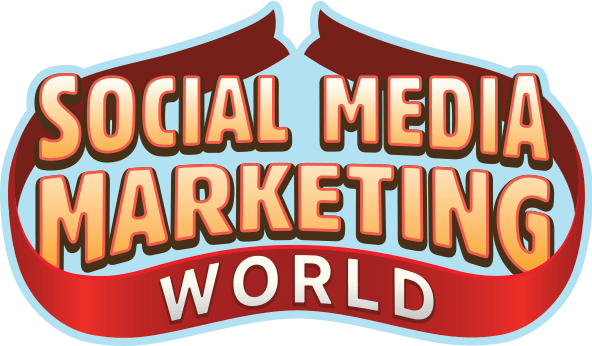
Get expert training and an unbeatable conference experience when you attend Social Media Marketing World—from your friends at Social Media Examiner.
Broaden your reach, skyrocket your engagement, and grow your sales. Become the marketing hero your company or clients need!
🔥 Save $900 on an All-Access ticket. Sale Ends Friday! 🔥
GET THE DETAILSNarrowing agency products and services down to a few key areas makes it simpler for staff to execute for clients. Louise focuses exclusively on LinkedIn content development and management, so packages center around combinations of company page content, CEO thought leadership articles, etc. Her team knows precisely the deliverables with each client package.
Instead of customized proposals and plans, having these defined products and services is critical to replicating and creating a scalable agency. It allowed Louise's team to execute streamlined processes and build a business model.
#4: Specialize for Maximum Impact
Beyond productizing services, niching down into a specialty like LinkedIn marketing has greatly benefited Louise. Her coach was actually the one who suggested she focus specifically on LinkedIn. That was one of the first pivotal changes she guided Louise to make.
Staying hyper-focused on mastering one platform allows Louise to keep up with ever-evolving functionality and share that expertise to attract potential clients hungry for those specialized skills.
Niching down has been pivotal to staying relevant in this constantly shifting marketing landscape. When something new launches on LinkedIn, Louise makes an informal but factual video demoing that update. While she admits her YouTube channel isn't flashy, it ranks well for tactical LinkedIn searches. Louise even won clients who found her how-to content that way. It shows the power of becoming an expert in one channel.
Because she immerses herself in business-to-business uses of LinkedIn and genuinely enjoys how businesses can leverage it for sales, staying current and relevant without being overwhelmed by the scope of digital marketing is effortless.
Louise’s coach also asked her, “Do you want to be known for content marketing services or for delivering training?” That guidance helped shape Louise’s business into almost two parts, operating as one company. On one side, the agency delivers content for clients. That frees Louise up to do what she loves on the other side—teaching LinkedIn workshops and one-on-one sessions.
It's like the business has two wings fueling growth. And that's where Louise sees things going long term over the next 10 years—continuing to build out the agency model. Specializing allowed Louise to play to her strengths while still having differentiated services. Finding a niche you enjoy and uniquely providing value within is key.
Niching down also means staying in your lane. It’s easy to say “yes” to everyone, especially when you are a solopreneur or starting out. But you can’t be everything to everyone—saying “no” is crucial, Louise says. “Just because you can do something doesn’t mean you should.” While it’s tempting to dilute your brand by getting distracted with every new opportunity, setting boundaries around your core services is vital.
#5: Generate Strong Word of Mouth
Referrals and word of mouth lead to the most new business for Louise’s agency. She credits consistency in showcasing insights into using LinkedIn through her own content for lead generation and brand-building. Retention and referrals occur organically by thoroughly understanding client needs and delivering real value.
Some high-level clients have also found her on YouTube while searching for solutions. For example, an Irish financial services founder living in China needed to be on LinkedIn. He went to YouTube to learn, found Louise’s videos, and reached out for help. They worked together for over a year until he could bring marketing in-house.
Social media and speaking engagements have also proven fruitful sources of quality leads. Louise’s thought leadership content attracts ideal prospects who are already interested in her services. She builds relationships and awareness early on, then tends to turn those followers into customers further down the road. Her niche lets her be top of mind when prospects reach that pain point.
#6: Get Support on the Journey
Perhaps Louise’s number one piece of advice for transitioning solopreneurs is getting an experienced coach or consultant to provide guidance. Trying to figure everything out through trial and error can waste time and money unnecessarily. Having someone who faced similar scaling challenges to call upon offers invaluable perspective.
“Somebody who's two steps ahead of you is all you really need,” Louise says.
Louise says having a coach who knew her business inside and out and could see its potential was instrumental. She gave Louise the tools and encouragement to level up at key points along the journey. Her outside perspective was valuable for mapping Louise’s business strategy.
She also recommends being your own advocate. Look for opportunities or local resources to help small business owners. For example, Louise is a part of a program for women entrepreneurs across Northern and Southern Ireland. They get together monthly in person to focus on business growth plans. It's a tremendous support system, Louise says.
She advises applying to programs like this, even if it feels like a stretch or is highly competitive. Going for these things with the mindset of “What do I have to lose?” has led to amazing rewards, from special events to trips to London. Louise says having an attitude of putting yourself out there and not opting out of opportunities has shaped her journey of growth in exciting ways.
Additionally, Louise notes that having a group of other people in the same space as you who you can share ideas with is highly valuable. For example, over a year ago, Louise reconnected over email with a group of women she had previously done an agency owners workshop with. When she asked if anyone wanted to form an ongoing mastermind group, they were enthusiastic to keep supporting each other.
When you lead an agency, you need people to bounce ideas off and share the real challenges openly. You can't always vent to your own team about the stresses you're facing as a business owner. But Louise says that a tight-knit group of peers in the same position who understand the ups and downs is invaluable.
Whether validating struggles, celebrating wins, or getting advice on challenges, having an agency owner mastermind has helped keep Louise grounded, motivated, and moving forward.
Louise Brogan runs a boutique marketing agency that helps established businesses develop their LinkedIn presence. She’s host of the LinkedIn with Louise podcast. She also runs a VIP Intensive to help people increase their LinkedIn visibility. You can find her on LinkedIn and YouTube. Check out more resources here.
Brooke B. Sellas is host of the Marketing Agency Show, a Social Media Examiner production. She is founder and CEO of B Squared Media, an agency that helps people connect, converse, and convert on social media. Her book is called Conversations That Connect. Find her on X/Twitter and LinkedIn.
Listen to the Podcast Now
This article is sourced from the Marketing Agency Show. Listen or subscribe below.
Where to subscribe: Apple Podcasts | Spotify | YouTube Music | YouTube | Amazon Music | RSS
✋🏽 If you enjoyed this episode of the Marketing Agency Show, please head over to Apple Podcasts, leave a rating, write a review, and subscribe.
Stay Up-to-Date: Get New Marketing Articles Delivered to You!
Don't miss out on upcoming social media marketing insights and strategies! Sign up to receive notifications when we publish new articles on Social Media Examiner. Our expertly crafted content will help you stay ahead of the curve and drive results for your business. Click the link below to sign up now and receive our annual report!
AI Is Transforming Marketing—Are You Keeping Up?
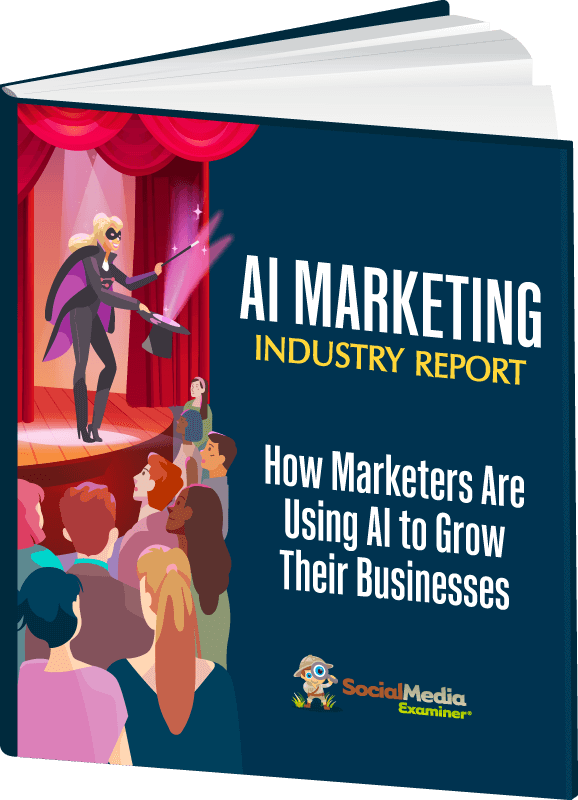
Marketers are rapidly adopting AI to transform their work. Our new 2025 AI Marketing Industry Report surveyed over 730 marketers to reveal the tools, tactics, and trends shaping the industry, including
🔥 90% of marketers save time with AI—discover the top use cases
🔥 The 5 biggest challenges marketers face with AI and how to overcome them
GET THE AI MARKETING INDUSTRY REPORT
